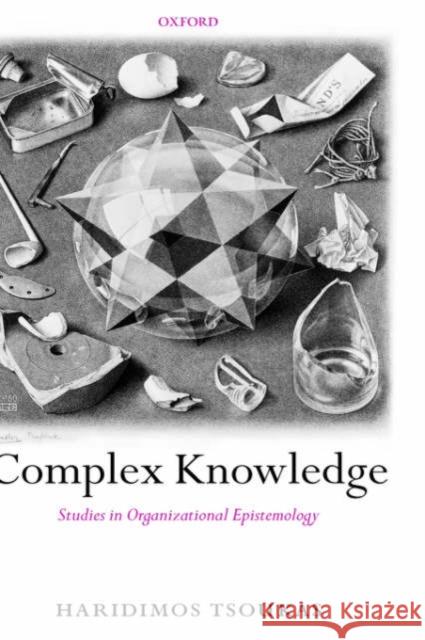Complex Knowledge: Studies in Organizational Epistemology » książka
Complex Knowledge: Studies in Organizational Epistemology
ISBN-13: 9780199275571 / Angielski / Twarda / 2005 / 426 str.
In this book, Haridimos Tsoukas, one of the most imaginative organization theorists of our time, examines the nature of knowledge in organizations, and how individuals and scholars approach the concept of knowledge. Tsoukas firstly looks at organizational knowledge and its embessedness in social contexts and forms of life. He shows that knowledge is not just a collection of free floating representations of the world to be used at will, but an activity constitute of the world. On the one hand, the organization as an institutionalized system does produce regularities that can be captured via propositional forms of knowledge. On the other, the organization as practice as a lifeworld, or as an open-ended system produce stories, values, and shared traditions which can only be captured by narrative forms of knowledge. Secondly, Tsoukas looks at the issue of how individuals deal with the notion of complexity in organizations: Our inability to reduce the behavior of complex organizations to their constituent parts. Drawing on concepts such as discourse, narrativity, and reflexivity, he adopts a hermeneutical approach to the issue. Finally, Tsoukas examines the concept of meta-knowledge, and how we know what we know. Arguing that the underlying representationalist epistemology of much of mainstream management causes many problems, he advocates adopting a more discursive approach. He describes what such an epistemology might be, and illustrates it with examples from organization studies and strategic management. An ideal introduction to the thinking of a leading organizational theorist, this book will be essential reading for academics, researchers, and students of Knowledge Management, Organization Studies, Management Studies, Business Strategy and Applied Epistemology.











